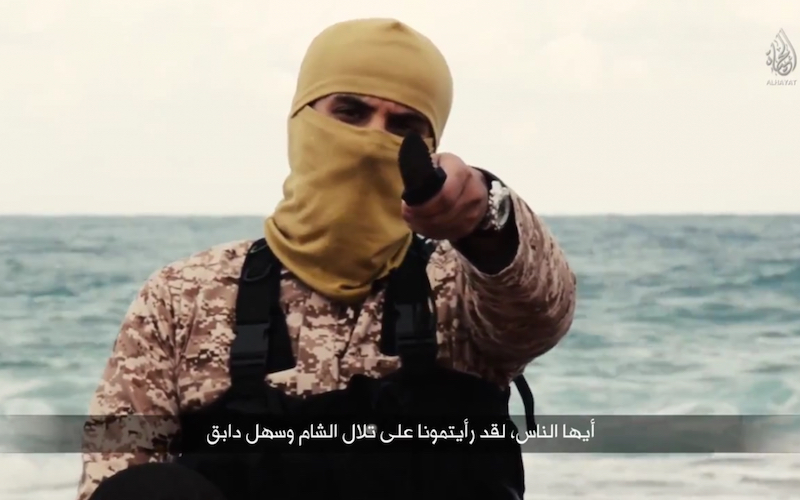
“More Than Just Negotiations”: No End to the Libyan Crisis
Over the past few years, the world has watched Libya burning. What started in the Libyan city of Benghazi in February, 2011 has resulted in a full blown civil war when peaceful demonstrations turned into an armed rebellion which consumed the entire state. After the uprising, the rebel forces formed an interim governing body, which later came to be known as the National Transitional Council. The world reacted vigorously towards the crisis, because the government fought the rebels and protestors with violence.
Now, the toll of casualties and internal displacement is burdening the country and the economic situation is disastrous. The instability crippled the administration and the border became vulnerable, thus the Islamic State eagerly took advantage and established an operational militant terrorist organization. Fearless about crossing the border, their presence has amplified violence and despair in the country.
The war so far
Muammar al-Gaddafi’s four decades of rule came to an abrupt end in 2011. After the imprisonment of human rights activist Fethi Tarbel, angry protestors took to the streets during anti-government rallies. They called for the release of all political prisoners and more significantly, they called for Gaddafi to step down. Over several weeks the protests began intense and spread across the nation. The government reacted with violence.
The Libyan government used rubber bullets, and later did not hesitate to use lethal force. Live ammunition was fired at protestors, and tanks and artillery were used on those who tried to resist. There was no internet access, no communications within the country or to the outside world and the national telephone service was suspended temporarily.
This sudden escalation of a peaceful protest into a conflict shocked the entire world. It became clear that the Libyan crisis was a threat to peace both within Libya and to neighboring countries. The protection of Libyan nationals and the vulnerability of their socio-economic conditions was a priority for the international community.
As the conflict heightened, Gaddafi’s power slowly slipped from his hand. The clashes were intense and Libyan armed forces slowly began supporting the rebel forces. By 23rd February, newly formed armed forces drove pro Gaddafi troops from the eastern part of Libya. As foreign fighters became involved, diplomatic efforts grew intense. When the United Nations Security Council unanimously passed the resolution for economic sanctions, the only play left for Gaddafi was to step down.
During the revolution, the National Transitional Council of Libya, popularly known as Transitional National Council (TNC), was formed to provide a “political face of the revolution.” It administered areas under rebel control. After the fall of the regime, the NTC briefly governed Libya. The NTC called for elections for the General National Congress which took place in July and responsibility was handed to the new government on August 8th. The council then gained international legitimacy as the governing authority in Libya. The UN General Assembly recognized the NTC as the representative of Libya in September 2011.
However, peace and tranquility were not meant for Libya. The Islamic State in Iraq and the Levant strategically won the few lost rebel territories and aggressively advanced towards Tripoli. Led by the Iraqi-born Ibrahim Awad Ibrahim al-Badry, the Islamic State has remained a force that is unchallenged today. The Battar Brigade, originally Gaddafi’s loyalists in the Syrian Civil War, pledged allegiance to the Islamic State in late 2012. They fought actively with many terrorist organizations in Syria and Iraq, and after returning to Libya in 2014, formed a new faction called the Islamic Youth Shura Council.
This group actively began recruiting young men, especially from the members of the Derna branch of Ansar al-Sharia, another terrorist group which actively worked in Libya under the slogan “A step toward building the Islamic State.” In September, 2014, two IS factions were sent to Libya.
The Islamic Youth Shuro Council along with its military factions pledged allegiance to IS on October 5th, 2014. The Islamic State has created many chapters especially in Tripoli, Benghazi, and Sirte. They occupy large military facilities in the Jebel Akhdar region where they train military recruits today. According to the Wall Street Journal, the Islamic State ordered their Libyan factions to select domestic targets. The following week, Libyan members of ISIS carried out attacks against oil installations and international hotels, and there were mass executions as they expanded their Libyan territory.
Possible Solutions
Instability and violence exist in many parts of the Middle East and North Africa which cripple unstable governments and pave the way for terror organizations to rise to power and radicalize the population. The international community should provide humanitarian aid and boots on the ground in order to protect human lives. Global powers should help Libya economically and politically so that Libya can defend itself against foreign invading militias, especially those loyal to IS.
